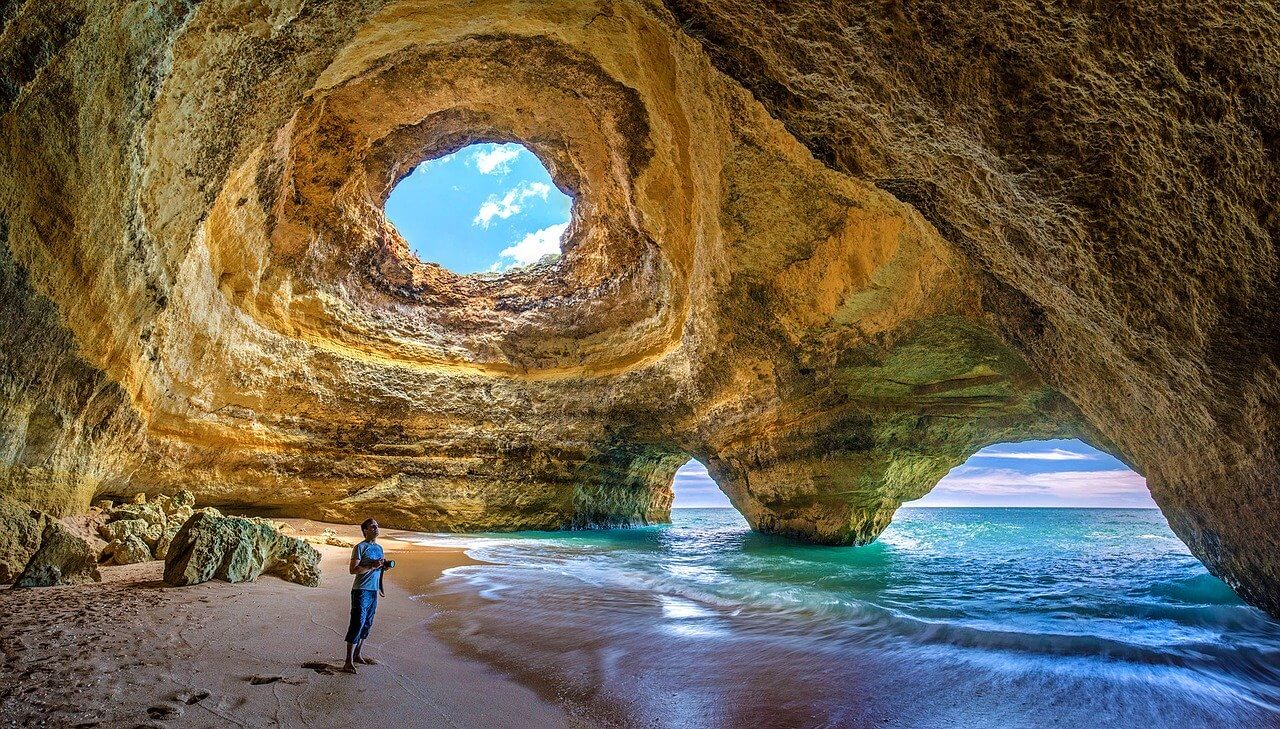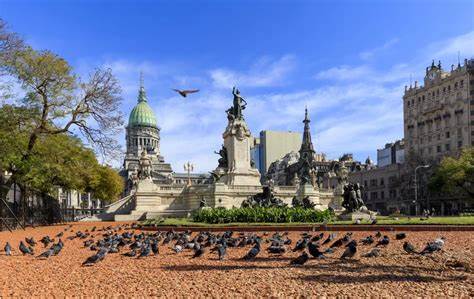Portugal, with its captivating blend of history, culture, and natural beauty, is emerging as a top destination for travelers looking to embrace sustainability while exploring one of Europe’s most charming countries. From the vibrant streets of Lisbon to the sun-drenched beaches of the Algarve, Portugal offers a range of experiences for all types of travelers, with an increasing focus on responsible tourism. Whether you’re hiking through the Douro Valley, discovering the rich traditions of Fado music, or enjoying the country’s incredible gastronomy, Portugal is quickly becoming a sought-after destination for those seeking authenticity, natural beauty, and sustainability in their travels.
Sustainable Tourism: Protecting Portugal’s Natural and Cultural Heritage
Portugal has become a leader in sustainable tourism, with a growing number of destinations and businesses prioritizing eco-friendly practices. From energy-efficient accommodations to sustainable agriculture, the country is striving to balance tourism with environmental protection. In Lisbon, the capital city, initiatives like green building certifications for hotels, increased use of public transportation, and the promotion of cycling routes have helped minimize the environmental footprint of tourism.
The Douro Valley, famous for its terraced vineyards and scenic landscapes, is an excellent example of how Portugal is blending sustainability with tourism. The region has been designated as a UNESCO World Heritage site, and efforts are being made to preserve the natural beauty and agricultural traditions that have defined the valley for centuries. Many vineyards and wineries in the region have adopted sustainable farming practices, reducing water usage and minimizing the use of pesticides while promoting organic and biodynamic wines.
Another example of responsible tourism in Portugal is the region of Alentejo. Known for its vast plains, rolling hills, and historic towns, Alentejo is seeing an increase in eco-friendly accommodations, from rural retreats and boutique hotels to eco-lodges that emphasize conservation and local culture. Visitors to the region can enjoy hiking, cycling, and birdwatching, while supporting sustainable local businesses and agricultural practices.
Gastronomy: A Feast of Local, Seasonal Ingredients
Portugal’s gastronomy is one of the country’s greatest attractions, and sustainable food practices are taking center stage in its culinary scene. Portugal has a deep-rooted tradition of using local, seasonal ingredients in its dishes, and this has been increasingly reflected in the country’s food tourism. From the renowned seafood of the coastal regions to the fresh vegetables and cured meats of the inland areas, Portuguese cuisine showcases the diversity and quality of its local produce.
In Lisbon and Porto, travelers can embark on culinary tours that focus on sustainable food practices. These tours often include visits to local markets, where vendors sell organic fruits and vegetables, as well as sustainable seafood and locally produced cheeses. In rural regions like the Azores, visitors can enjoy farm-to-table experiences, where they can meet local farmers, learn about traditional farming methods, and enjoy meals made from ingredients that are grown and harvested locally.
One of the most iconic dishes in Portugal is bacalhau (salted cod), which is often considered the national dish. Sustainable fishing practices are helping to ensure that this beloved ingredient remains abundant and healthy for generations to come. The rise of sustainable seafood initiatives, like the promotion of responsibly caught fish, is part of Portugal’s effort to protect its marine environment while still maintaining the country’s culinary heritage.
Cultural Heritage: Immersing in Portugal’s Rich Traditions
Portugal is a country steeped in history and culture, with a wide array of experiences that allow travelers to immerse themselves in its unique traditions. The historic city of Lisbon, with its winding streets, stunning architecture, and vibrant neighborhoods, offers plenty of opportunities to connect with the local culture. The Alfama district, with its narrow alleys and colorful buildings, is the perfect place to experience Fado, Portugal’s hauntingly beautiful traditional music.
In Porto, travelers can discover the rich history of the city’s port wine production, with guided tours of the historic wine cellars and tastings of world-renowned wines. The UNESCO World Heritage site of Sintra, with its fairy-tale palaces and lush gardens, offers a glimpse into Portugal’s royal past, while the medieval castles and fortresses that dot the country’s landscape tell stories of Portugal’s deep-rooted history.
Beyond the urban centers, the small towns and villages of Portugal are where the country’s traditional way of life is most visible. In the Alentejo, visitors can explore whitewashed villages, centuries-old churches, and rural farms that have remained largely unchanged for generations. These regions provide an authentic experience where travelers can learn about traditional Portuguese crafts such as pottery, weaving, and cork production.
Wellness and Nature: Reconnecting with the Land and Sea
Portugal’s natural beauty provides the perfect backdrop for wellness tourism, offering a range of activities that promote relaxation, rejuvenation, and connection with nature. The country’s long coastline, with its golden beaches and dramatic cliffs, is a haven for beach lovers and surfers alike. In the Algarve, the sun shines almost year-round, making it an ideal destination for wellness retreats that focus on yoga, meditation, and mindfulness.
For nature enthusiasts, Portugal offers plenty of hiking and cycling opportunities. The Azores, a group of islands in the middle of the Atlantic, are known for their lush landscapes, volcanic craters, and hot springs. Travelers can explore the island’s rugged terrain on foot or by bike, soaking in the stunning scenery and taking part in activities such as whale watching and birdwatching.
In the Douro Valley, visitors can take part in vineyard tours, which not only offer a chance to taste some of the world’s finest wines but also provide an opportunity to connect with the land through sustainable farming practices. Similarly, the mountains of Northern Portugal offer a chance to reconnect with nature through outdoor activities like trekking, fishing, and rock climbing.
Eco-Friendly Accommodations: Where Sustainability Meets Comfort
Portugal’s hospitality industry is rapidly adopting eco-friendly practices, offering travelers a wide range of sustainable accommodations. From boutique hotels to countryside retreats, many establishments have embraced energy-efficient technologies, waste reduction programs, and local sourcing of products.
In Lisbon, hotels like the Altis Belem Hotel and the Inspira Santa Marta Hotel have adopted green building certifications, with energy-saving systems and eco-friendly amenities. Outside the city, the Alentejo region boasts eco-lodges that blend seamlessly into the natural landscape, offering comfortable, sustainable accommodations that encourage guests to live in harmony with the environment.
On the Azores islands, eco-friendly resorts focus on preserving the unique biodiversity of the region, using sustainable materials in their construction and promoting responsible tourism practices. Many of these resorts also offer wellness programs, such as spa treatments using locally sourced ingredients, and offer experiences that help travelers connect with the island’s natural beauty.
Conclusion: Portugal – A Destination for the Modern Traveler
As more travelers seek destinations that offer both sustainability and cultural immersion, Portugal is perfectly positioned to meet these demands. From its eco-conscious accommodations to its commitment to preserving natural and cultural heritage, Portugal is a model for responsible tourism. Whether you’re exploring the charming streets of Lisbon, relaxing on the beaches of the Algarve, or hiking through the lush forests of the Azores, Portugal offers an unforgettable travel experience that is both enriching and sustainable. For those seeking a blend of history, nature, and sustainable practices, Portugal is a destination that promises to leave a lasting impression.






